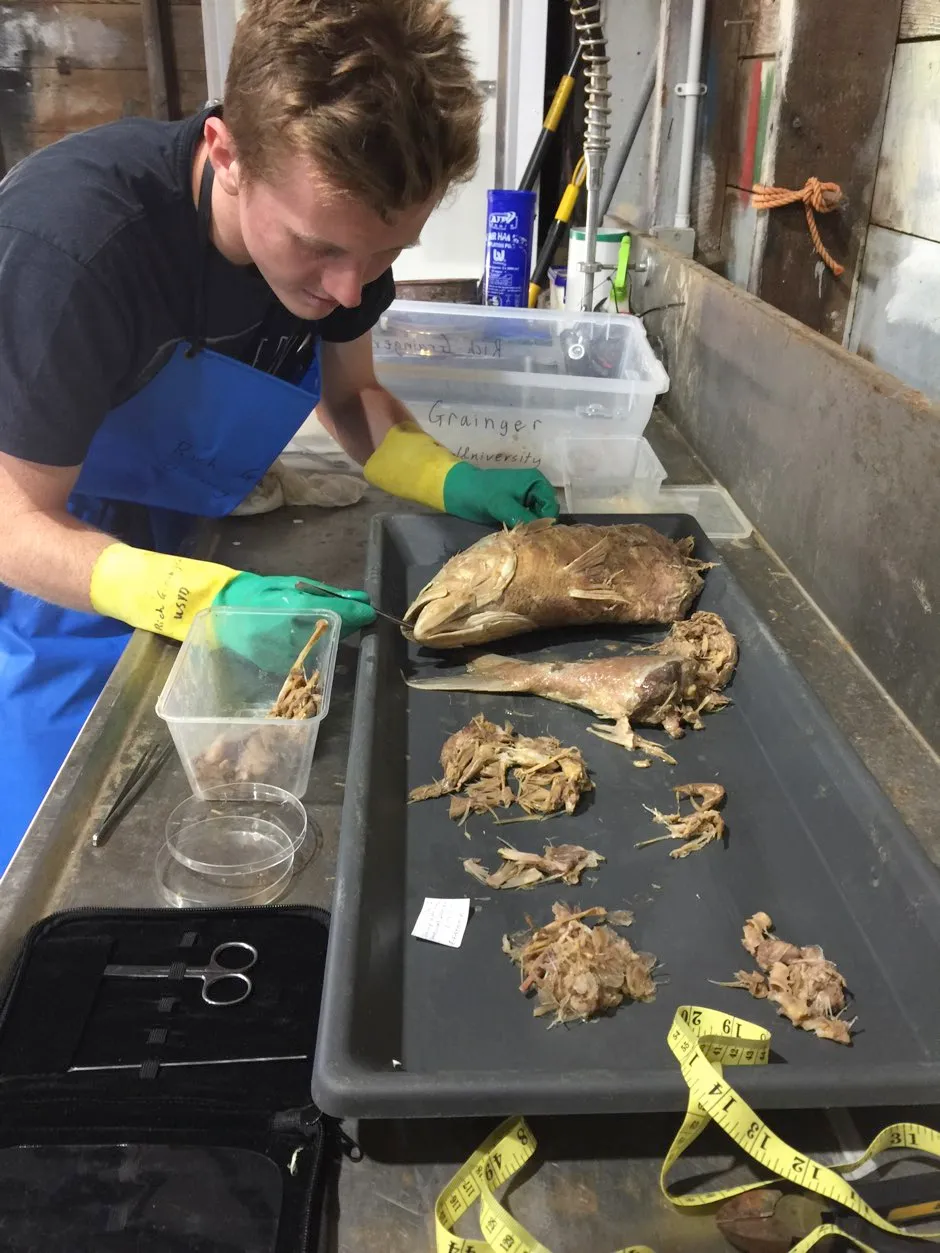A more scientific opening scene to the movie Jaws would look wildly different, as recent research has shown great white sharks spend more time feeding close to the seabed than previously thought.
"The stereotype of a shark's dorsal fin above the surface as it hunts is probably not a very accurate picture,"said University of Sydney PhD candidate and lead author of the study, Richard Grainger.
Grainger and his team are the first to run a study of this detail into the dietary habits of white sharks. By looking at the stomach contents of 40 young white sharks, the researchers were able to identify different types of prey and, knowing the habitats of the prey, could pinpoint where the sharks spend most of their time hunting.
Read more about sharks:
- Light shed on secrets of glow-in-the-dark sharks
- What is a goblin shark?
- Killer whales' taste for shark liver sends great whites fleeing in terror
"White sharks have a varied diet,” said Dr Gabriel Machovsky-Capuska, a co-author of the study. “As well as east Australian salmon, we found evidence of other bony fish including eels, whiting, mullet and grasses.
"We found that rays were also an important dietary component, including small bottom-dwelling stingrays and electric rays.”

The only mammal found in the sharks’ stomachs was dolphin. It’s likely that the hunting of these bigger prey, which includes other sharks, would not happen until the great white sharks have grown to 2.2 metres long, said Grainger.
The larger the shark, the higher in fat their diet, the research also showed.
To review the sharks’ diets, the researchers had to collect stomachs from deceased animals. These were caught in the New South Wales Shark Meshing Program, which is designed to prevent interactions between humans and sharks on 51 Australian beaches.
The results of the study will help in the protection of the species, as well as in managing its relationship with humans.
Reader Q&A: How do sharks smell blood underwater?
Asked by: Todd Michael Wilson, USA
When you smell something in the air, it’s because scent molecules have dissolved into the wet lining of your nose. Smelling underwater is no different, except that the molecules are already dissolved in the seawater. It’s a myth that sharks can smell a single drop of blood from a mile away.
Sharks actually have roughly the same sensitivity as other fish and can detect smells at between one part per 25 million and one part per 10 billion, depending on the chemical, and the species of shark. At the top end, that’s about one drop of blood in a small swimming pool.
Read more:
